Sweet foods: desserts, pastries, sweets, chocolates have many fans. The carbohydrates they contain are essential for the body, although they can be harmful. To make food not only tasty, but also safe, they try to replace sugar. The editors of the site "bestx.htgetrid.com/en/" offer you an overview of the best sugar substitutes.
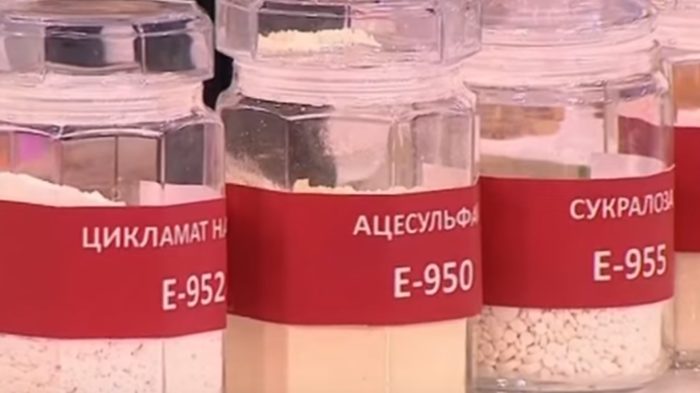
Content
What are sugar substitutes for?
Nature, as well as the food industry, offers consumers a lot of sweets that are difficult to refuse.
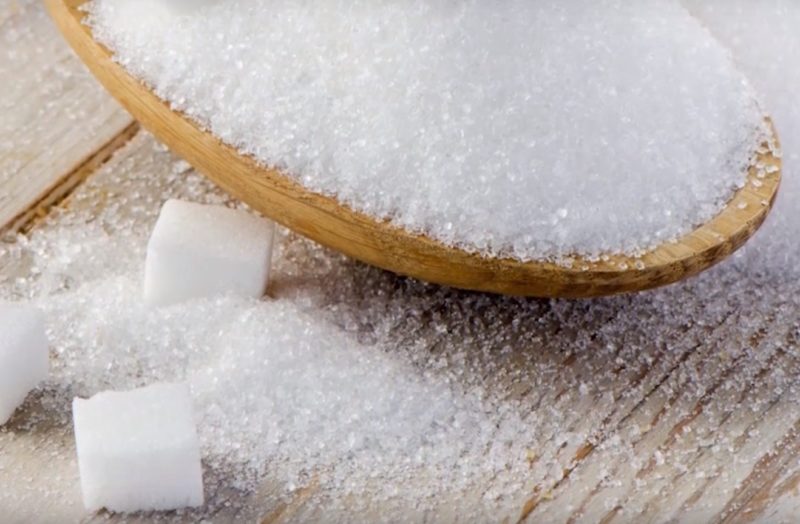
Benefits of eating sugary foods that contain sugar:
- Recharging the body with energy, enhancing mental and physical activity.
- Increased production of hormones "joy" when a person is enjoying themselves.
- Interrupting bad breath.
- Natural antidepressant.
But the use of sweets for the body brings not only pleasure, benefits, but also harmful effects.

Disadvantages:
- The transition of excess carbohydrates to fat cells, the appearance of excess weight.
- Increased blood glucose levels.
- The load on the pancreas, forced to intensively produce insulin to absorb glucose. And, as a result, a constant feeling of hunger, and then overeating.
- The appearance of caries on the tooth enamel.
- The development of pathogenic bacteria in the intestine, leading to disorders of the digestive system, failure of immunity.
- The emergence of addiction and psychological dependence, when people try to "seize stress", to achieve the production of the hormone of happiness.
- The occurrence of skin allergic reactions due to the vital activity of pathogenic bacteria.
In connection with the above, manufacturers are increasingly inventing safe sweeteners - sweeteners. Experts believe that such food additives are less harmful, and are also allowed for use:
- patients with diabetes mellitus;
- patients with diseases of the cardiovascular system;
- people with obesity of any degree;
- athletes, as well as those who lead an active lifestyle;
- allergy sufferers;
- often ill, with weak immunity.
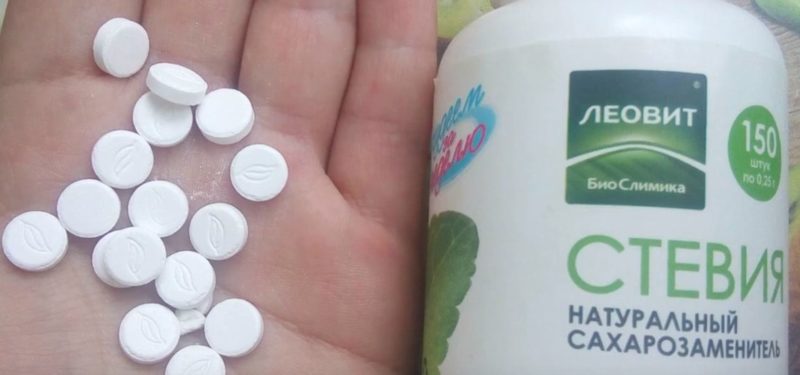
Sweeteners come in the following forms:
- Liquids;
- Powder;
- Tablets.
Most popular remedies:
- tableted: Great Lif (allowed for diabetics), Sukrasit (possible for children, pregnant women, patients with diabetes);
- powdered: Lakanto (not prohibited for children, pregnant women, diabetics), FitParad (even for pregnant women);
- liquid: Milford (used by children, pregnant women, people with diabetes).
By origin, sugar substitutes are:
- natural, isolated from natural materials;
- artificial, synthesized from chemical ingredients.
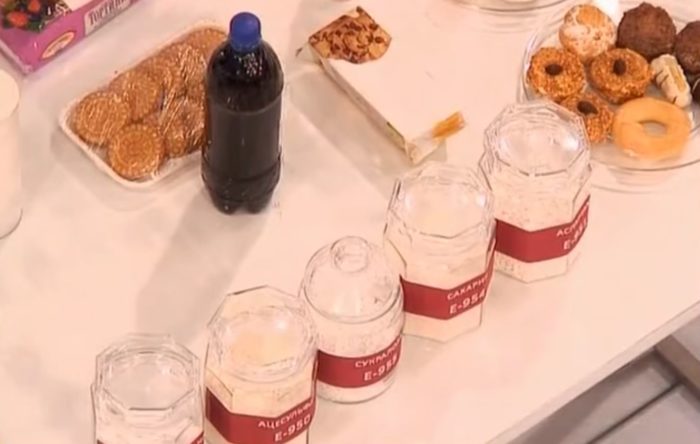
Benefits of using sugar substitutes:
- They have increased sweetness;
- Have low or no calories;
- Helps to reduce weight;
- They take good care of tooth enamel;
- They tone the body, give physical energy, increase mental activity;
- Do not affect insulin production, do not increase blood glucose levels;
- Improves blood composition;
- They have an antioxidant effect;
- Increase bone density
- Improve the absorption of minerals by the body;
- They interfere with the growth of pathogenic bacteria in the intestines, which has a beneficial effect on immunity.
Disadvantages of sugar substitutes:
- Consumption should be normalized, excessive consumption has a negative effect on the body, like sugar;
- Sweeteners are selected individually, as they have contraindications;
- Excessive use leads to obesity;
- Certain substitutes can affect the functioning of the gastrointestinal tract;
- Synthetic sweeteners can have additional components that have negative side effects;
- Substitutes can be laxative or reduce blood pressure;
- Not all sugary supplements are legal for pregnant or lactating women;
- Natural sweeteners can provoke allergic reactions in different ways.
Best sugar substitutes
Fructose
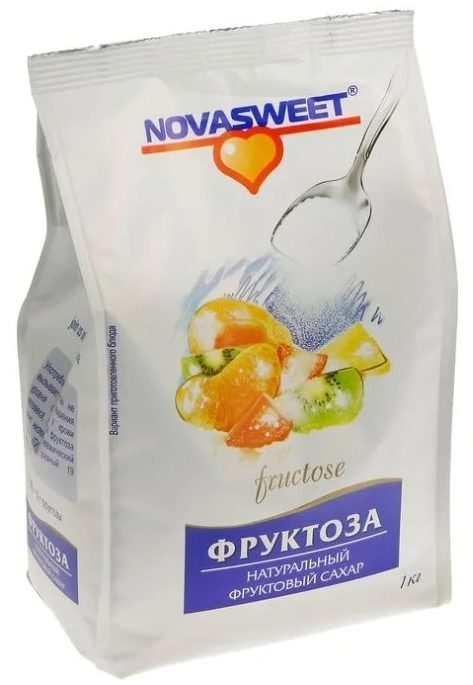
Russian-made sugar substitute. Of natural origin, it is a component of berries, fruits and even vegetables. The sweetness of fructose is 1.5 times that of sugar. Used to enhance the flavor of berry or fruit dishes. It is recommended for people with diabetes, as it has a low glycemic index. Low-calorie, but nonetheless uncontrolled intake is prohibited, since excess fructose can be converted into glucose. Fructose is popular among athletes as it activates and tones up. The average cost is 190 rubles.
Advantages:
- absorbed quickly;
- has few calories;
- safe for diabetics;
- affordable;
- economical to use.
Disadvantages:
- not recommended for permanent use;
- excess fructose forms fat cells.
Erythritol
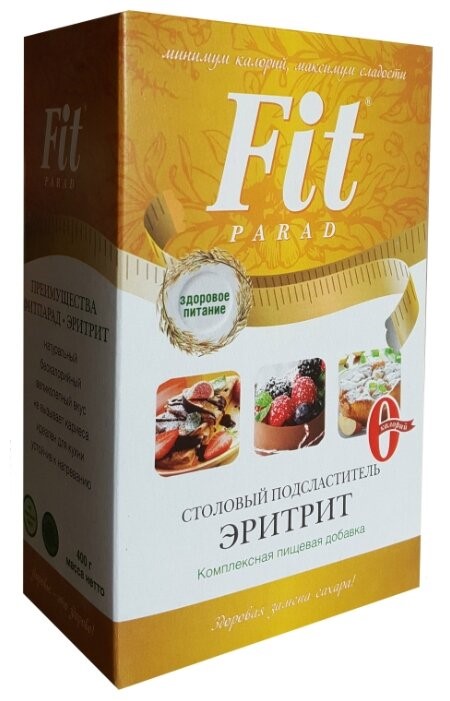
Russian sweetener of natural origin, in a simple way called "melon sugar". The product is unique in that it has no calories, is odorless, and has no effect on blood glucose levels. It is very popular in cooking, although it is inferior in sweetness to sugar. The average cost is 345 rubles.
Advantages:
- natural;
- safe;
- recommended for people with metabolic disorders;
- suitable for diabetics;
- does not cause caries.
Disadvantages:
- not economical.
Sorbitol
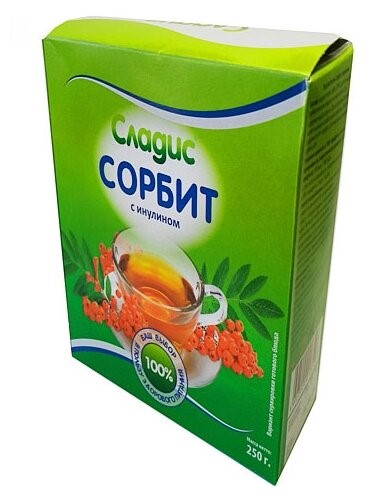
Product made in Russia, natural in composition, widespread in the food industry. Sorbitol has no artificial additives, but it contains inulin, which is a plant fiber useful for the intestines. The sweetener is popular in cooking and is also used to make coffee or tea. Users report an improvement in the functioning of the digestive system after consuming sorbitol. The average cost is 120 rubles.
Advantages:
- improves the microflora of the intestinal tract;
- low-calorie;
- preserves vitamin B in the body;
- has a choleretic effect;
- has no smell;
- affordable.
Disadvantages:
- not recommended for long-term use;
- diabetics use with caution, as it tends to be absorbed completely, it can accumulate in the body.
Xylitol
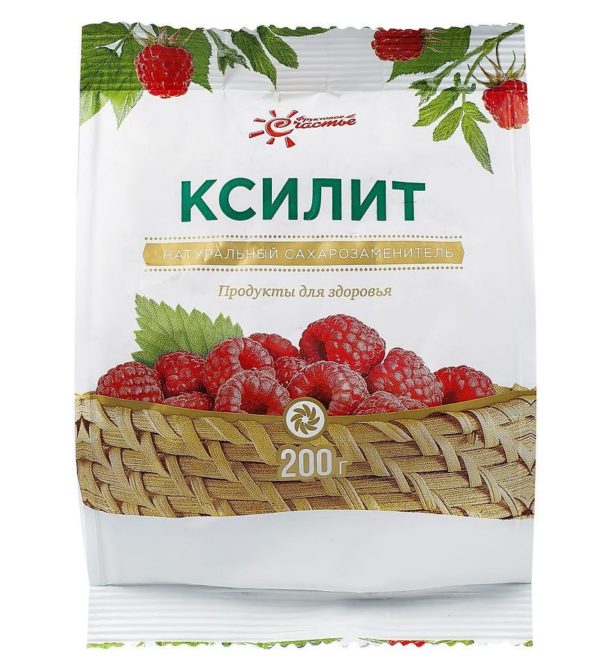
Manufactured in Russia. The main purpose - use in the manufacture of desserts, baking confectionery. The sweetener is natural and is easily found in fruits or berries. The chemical composition is similar to sorbitol in that it also contains alcohol atoms. It is produced for the food industry, as it is low in calories and has the unique property of keeping sweetness at high temperatures. Recommended for overweight people. The average cost is 174 rubles.
Advantages:
- fast assimilation;
- few calories;
- cooling taste;
- the presence of choleretic properties;
- does not affect the appearance of caries;
- sold at a reasonable price.
Disadvantages:
- individual tolerance;
- an allergic reaction is possible.
Sucralose]
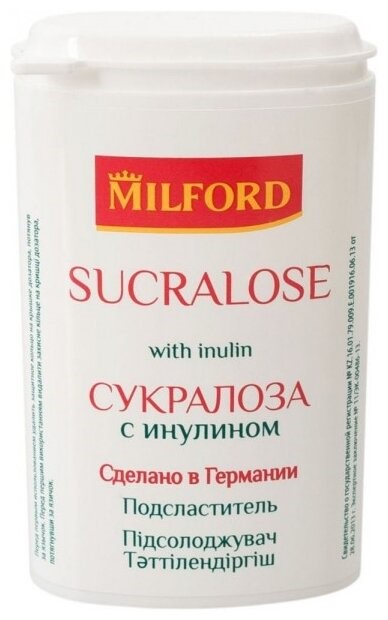
Produced in Germany, it is popular with athletes and overweight people. The sweetener has a sweetness 600 times that of sugar. The nutritional supplement has zero calories and therefore does not contribute to weight gain. The main use of sucralose is to sweeten beverages.The product is not absorbed by the body, but is completely removed from it. Sucralose is added instead of sugar by food manufacturers in the production of carbonated drinks, sports nutrition, baking, and the manufacture of chewing gum. The average cost is 190 rubles.
Advantages:
- does not affect the increase in glucose;
- allowed for diabetics;
- has no calories;
- very economical consumption;
- does not accumulate in the body;
- retains properties at high temperatures;
- tastes good;
- affordability.
Disadvantages:
- not in every pharmacy.
Aspartame
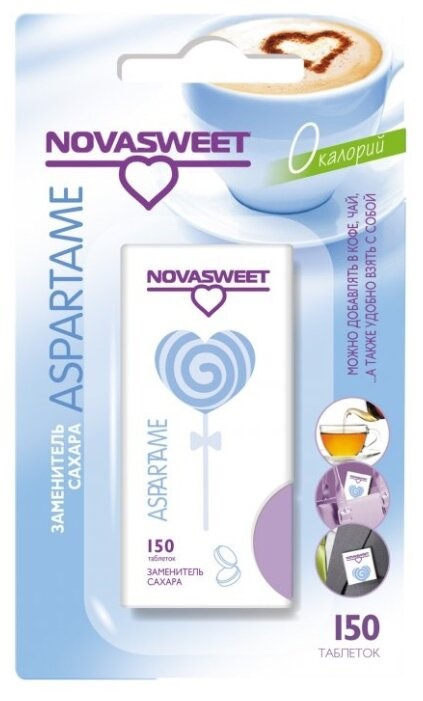
The synthetic sweetener is made by various manufacturers, but mainly in China. In terms of sweetness, it surpasses sugar 200 times, has a high taste, is synthesized from natural materials, used in the manufacture or for sweetening drinks. The average cost is 91 rubles.
Advantages:
- low calorie content;
- long-lasting pleasant aftertaste;
- easy to find at any pharmacy;
- budget price.
Disadvantages:
- displayed after disintegration;
- does not withstand high temperatures.
Cyclamate
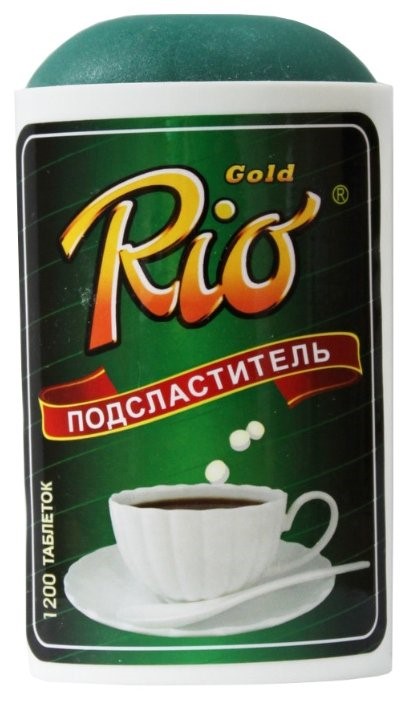
Product from a German manufacturer, synthetic origin. The sweetener is 40 times sweeter than sugar, is sold over the counter, is widely used to sweeten food or beverages, and in pharmaceuticals in the manufacture of medicines. It has a low calorie content, is not absorbed by the body, it is excreted by the kidneys. The average cost is 71 rubles.
Advantages:
- high taste;
- manufactured in full compliance with standard safety;
- fast complete elimination;
- thermally stable;
- pleasant sweetness;
- does not cause caries;
- low price.
Disadvantages:
- has a daily limit.
Neotam
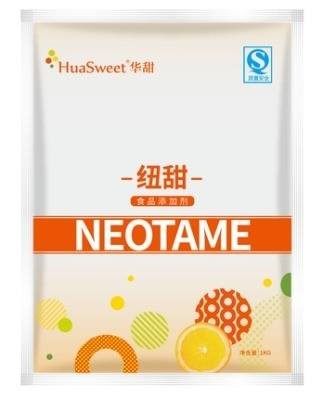
Chinese sweetener of synthetic origin, similar in production to aspartame, only 10,000 times sweeter than sugar. The newest sweetener used to sweeten foods, beverages, and baked goods and confectionery. The average cost is 2100 rubles.
Advantages:
- pure taste, no impurities;
- high temperature resistance;
- allowed for diabetics;
- no calories;
- super economical.
Disadvantages:
- it is difficult to calculate the optimal dose, not to overshoot;
- reduces blood pressure, is contraindicated for hypotensive patients.
Stevia
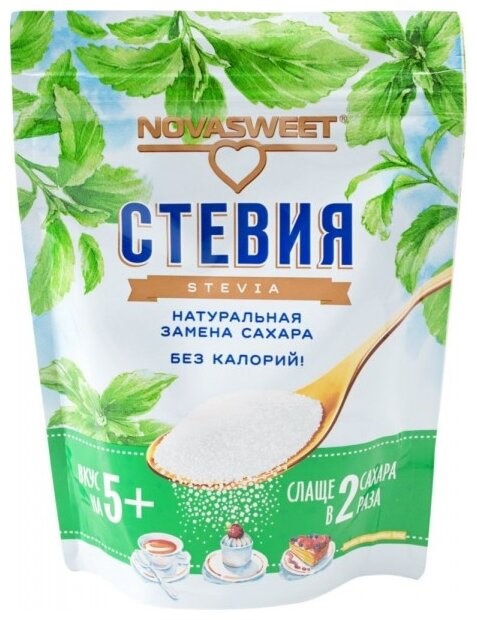
Russian sweetener, natural plant origin. Stevia herb is called "honey herb" because it has a sweetness 2 times higher than sugar. Recommended for patients with diabetes mellitus, is widely used in the manufacture of diabetic products. Does not contain calories, safe. Users like to add stevia to coffee or tea. Desserts with this sweetener acquire a pleasant sweetness. The average cost is 420 rubles.
Advantages:
- no foreign taste;
- economical consumption;
- zero calories;
- has no contraindications if the daily rate is observed.
Disadvantages:
- can lower blood pressure.
Acesulfate KAcesulfate K
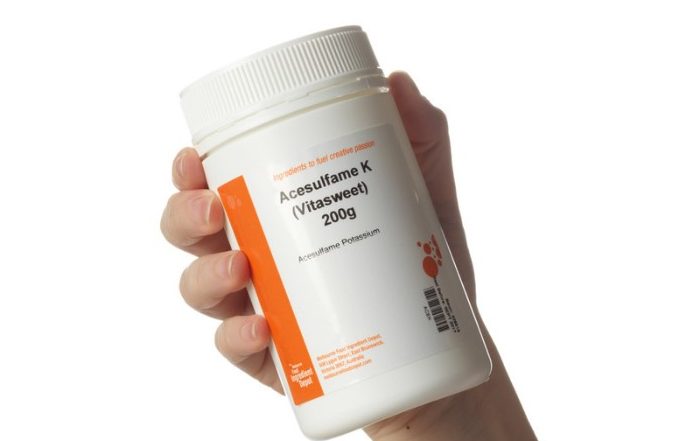
Russian substitute, with a pleasant taste, widespread in industrial production, the manufacture of medicines, the food industry. Most often mixed with other sugary food supplements. Concentrated acesulfate with a bitter taste. The average cost is 250 rubles.
Advantages:
- very sweet;
- economical;
- withstands high temperatures.
Disadvantages:
- may cause an allergic reaction.
Can sweeteners be used for baby food?
Experts recommend removing artificial sweet food additives from baby food. Their use can negatively affect the health of the child: saccharin contributes to the disruption of the digestive system, cyclamate is harmful to the kidneys, and aspartame, when heated, releases toxic methanol.
Natural berry and fruit sweeteners represented by fructose, sorbitol, xylitol, stevioside have much fewer contraindications, as well as side effects.At the same time, nutritionists advise giving them in their natural form, that is, in the form of berries and fruits. Powder, liquid or tablet forms should be used strictly according to the instructions. Overuse or lack of control can lead to childhood obesity or allergies. Users prefer stevioside, which has many beneficial properties, does not affect blood glucose levels, helps lower blood pressure, and improves immunity.
Do sweeteners help you lose weight?
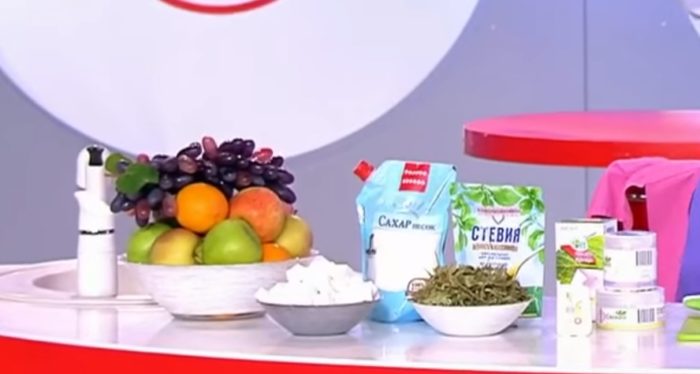
A person does not feel hungry, not only when the stomach is full of food, but also when the glycogen level is at a sufficient level. Low-calorie sweeteners satisfy the consumer's taste, but do not provide the body with glucose, which means they do not “saturate” the center responsible for satiety. Consequently, the digestive system constantly receives an impulse signal to eat. Thus, more foods are eaten, which negatively affects weight loss. Such a diet has the opposite effect. Accidentally received glucose is not absorbed, but is stored by the body in reserve, creating new fat cells. Approximately the same effect is obtained with the use of carbonated drinks with sugar substitutes. The sweetness irritates the taste buds and requires immediate satisfaction, and, therefore, a new supply of the drink. This explains the popularity of sugar substitutes in the food industry.
To really lose weight, you need to:
- First, strictly control the amount and calorie content of the foods consumed.
- Second, choose a sweetener as recommended by your dietitian.
- Purchase a food supplement that is safe for the body, contains the minimum amount of calories that can withstand heat treatment.
What sweeteners are allowed for type 2 diabetes?
For patients with type II diabetes, experts do not prohibit the use of sweeteners of natural or synthetic origin, but they advise to make a choice according to the recommendations of the supervising doctor.
The following substitutes are not intended for use by diabetics:
- sorbitol (it is believed that it worsens the condition of the blood vessels);
- xylitol (it has been noticed that it negatively affects the digestive process);
- saccharin (hypothesized to increase the risk of malignant tumors);
- acesulfame (has a harmful effect on the visual organ);
- mannitol (exacerbates chronic diseases);
- dulcin (has a negative effect on nerve cells).
Allowed for patients with diabetes:
- stevioside, safe for the body;
- fructose, a useful food supplement with a tonic effect;
- sucralose, which retains its properties after heat treatment;
- aspartame, a very sweet supplement.
| Not intended for diabetics | Allowed for diabetics |
|---|---|
| Sorbitol | Stevioside |
| Xylitol | Fructose |
| Saccharin | Sucralose |
| Acesulfame | Aspartame |
| Mannit | |
| Dulcin |
Sugar substitutes are, in essence, chemicals or compounds that taste sweet, contain no calories, or are low in calories that help reduce daily sugar intake and activate body functions during physical or mental stress. In addition, sweeteners can help you shed extra pounds and keep your blood glucose levels under control. If you have experience using the sugar substitutes described in the rating, or a healthier and safer sweetener, let us know in the comments.












